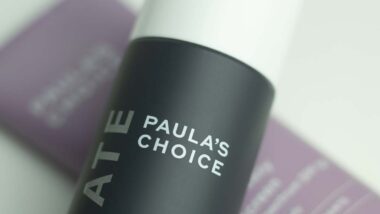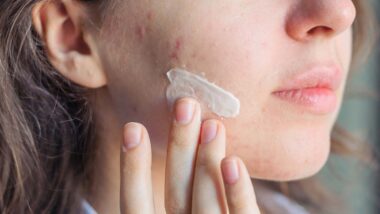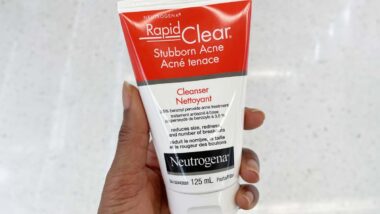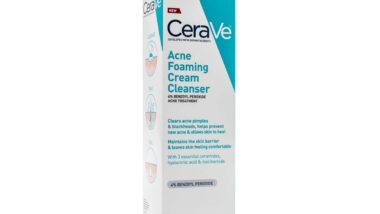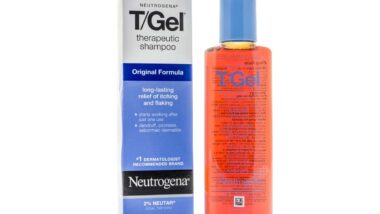Top Class Actions’s website and social media posts use affiliate links. If you make a purchase using such links, we may receive a commission, but it will not result in any additional charges to you. Please review our Affiliate Link Disclosure for more information.
Many people have used talcum powder for intimate hygiene over the course of their life. However, talc products may pose some dangers. With a growing number of lawsuits piling up against Johnson & Johnson for its talc products, longtime users of talcum powder may wonder: does baby powder cause cancer?
What is talcum powder?
Talcum powder is a product made from talc, a naturally occurring mineral mined from the earth. Talc is composed of oxygen, silicon, and magnesium. Talcum powder absorbs moisture and reduces friction, so it has been marketed for helping people keep their skin dry and free from rashes. It has been marketed for use with both adults and children, per the American Cancer Society.
According to several surveys, more than 40% of women use talcum powder as part of their daily hygiene routine, which means that a potentially large number of women may be exposed to the risk associated with the product.
Talc powder linked to ovarian cancer
So, does talcum powder cause cancer? Unfortunately, there is increasing evidence that suggests talc may be linked to a number of serious health conditions. Some studies show a possibility of talc being linked to ovarian cancer. This risk may occur in women who have used talc in the genital area, especially in those who have used the product for a long period of time.
Women who have used talcum powder for intimate hygiene purposes may be 30% more likely to develop ovarian cancer than those who did not use talcum powder, according to the National Center for Health Research.
However, research into the link between talc and ovarian cancer has been mixed, with some studies suggesting that talc does not have a link to ovarian cancer.
How does talcum powder cause cancer?
Some research suggests that ovarian cancer could be linked to talc if the talc powder particles that have been applied to or around the genitals travel through the vagina, the uterus and through the fallopian tubes until they reach the ovary.
Because there are few early symptoms of ovarian cancer, this dangerous disease is often not discovered until much later, in the last stages of the cancer, which makes this baby powder side effect even more dangerous. Cancer discovered at a later stage means that any treatment will be much less effective, and the likelihood of fatality will be greater.
Ovarian cancer is a particularly dangerous form of cancer and is the fifth leading cause of cancer fatalities in United States women, according to the National Cancer Institute.
 How is asbestos linked to talc?
How is asbestos linked to talc?
One element that complicates the issue of talcum powder’s health effects is its relationship to asbestos. Asbestos and talc are both naturally occurring minerals that are often found next to each other. Asbestos has long raised concerns as being a possible carcinogen. It has been linked to lung cancer, mesothelioma, and asbestosis.
Since asbestos and talc often appear together, it is important to discern what danger may come from asbestos and what may come from talc itself to discern if and how is talc linked to ovarian cancer?”
Because asbestos can be found near talc and may sometimes contaminate talc, experts worry about asbestos-related health risks to talcum powder users. Some studies have indicated that there may be an increased risk for lung cancer in those who mine or mill talc, but other studies have found no increased risk in these professions. Additionally, other factors and substances may complicate this result, throwing doubt on whether asbestos in talc may cause lung cancer.
J&J’s knowledge of talcum powder and cancer link
Investigations by both Reuters and The New York Times published back in Dec. 2018 revealed decades of documents within Johnson & Johnson showing knowledge of trace amounts of asbestos in its baby powder and worry within the company about what to do regarding this issue, but for decades, the company failed to disclose this risk. Even now, Johnson & Johnson maintains its confidence in its talc products.
What can consumers do?
Many consumers have filed lawsuits against companies that sell talc, saying that they knowingly put customers at risk for conditions like ovarian cancer.
According to the New York Times, Johnson & Johnson has recalled talc-containing products. This was reportedly done after the company faced thousands of baby powder cancer lawsuits. The pressure from consumers’ lawsuits was reportedly one reason why Johnson & Johnson took talc off the market.
Johnson & Johnson’s recall of talc may protect many consumers in the future, while the lawsuits may be able to provide compensation for the people who may have already been affected by talc and its possible link to cancer.
Imerys Talc, a supplier for Johnson & Johnson, has reportedly filed bankruptcy as the result of extensive lawsuits and claims that its product could be dangerous. According to Bloomberg, the company used a bankruptcy filing as an attempt to shield itself from lawsuits. The company will continue to operate despite its bankruptcy filing, says Bloomberg. Bloomberg reports that selling its North American talc business is not off the table.
Bloomberg explains that Imreys has faced talc cancer lawsuits for almost a decade. Reportedly, more than 14,000 lawsuits have been filed against Imreys. Some of these lawsuits claimed that the talc itself caused cancer, whereas others claimed that the talc was contaminated by asbestos, which allegedly caused mesothelioma.
Is Johnson’s baby powder with talc still sold in the U.S.?
Johnson’s Baby Powder in its original talc-based formula will no longer be sold in the U.S. or Canada after current stocks of the product are sold, the company announced in late spring, as reported by the New York Times. However, a shareholder vote to stop global sales of the product was not successful.
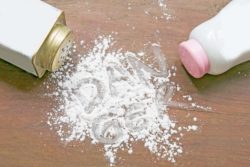
Plaintiffs have sued Johnson & Johnson, alleging the company knew that some lots of its talc-based baby powder were tainted with asbestos, which could lead to cancer. Asbestos is a known carcinogen and a leading cause of malignant mesothelioma, an often deadly form of cancer that affects the lining of an organ. The majority of cases involve pleural mesothelioma, which starts in the lining of the lungs known as the pleura.
Plaintiffs also alleged that talc was linked to ovarian cancer, but more emphasis in later years has been focused on whether those talc lawsuits also referred to products that had been tainted with microscopic bits of asbestos that caused that cancer as well as mesothelioma.
The New York Times said Johnson & Johnson management explained the decision to stop selling Johnson’s Baby Powder in its original talc-based formula was made due to a noticeable drop in sales throughout North America.
Talc powder cancer lawsuit cases
A Florida man added a wrongful death lawsuit against Johnson & Johnson over the connection between talcum powder and cancer. Filed by plaintiff Jerry Y. on behalf of his late wife Roberta, who died in January 2016 due to ovarian cancer, the lawsuit claims Roberta began using talcum powder products on a regular basis in 1970, continuing throughout her life. Roberta was diagnosed with ovarian cancer in January 2013, dying of the disease three years later.
After her passing, Jerry heard about the link between talcum powder and cancer, and alleged Johnson & Johnson played a significant role in his wife’s death.
The talc powder cancer lawsuit was filed on multiple counts, including failure to warn, defective design, breach of express and implied warranties, negligence, fraud, and wrongful death, among others.
Filing a talc powder cancer lawsuit
If you or someone you love has regularly used Johnson & Johnson’s talcum baby powder product as part of an intimate hygiene routine, and has since been diagnosed with ovarian cancer, you may be able to file a talc powder cancer lawsuit.
While filing a talc powder cancer lawsuit cannot take away the pain and suffering of a patient suffering from cancer, and cannot bring a loved one back to life, it can help to alleviate the financial burden caused by medical expenses and lost wages.
The Talcum Powder Lawsuit is Case No. 3:18-cv-00187-FLW-LHG, in the U.S. District Court for the District of New Jersey.
ATTORNEY ADVERTISING
Top Class Actions is a Proud Member of the American Bar Association
LEGAL INFORMATION IS NOT LEGAL ADVICE
Top Class Actions Legal Statement
©2008 – 2024 Top Class Actions® LLC
Various Trademarks held by their respective owners
This website is not intended for viewing or usage by European Union citizens.
Get Help – It’s Free
Join a Free Johnson’s Baby Powder Class Action Lawsuit Investigation
Failing to warn consumers about the danger of baby powder cancer could make companies liable for your injuries. If you used Johnson’s Baby Powder or Shower to Shower body powder and were diagnosed with ovarian cancer or mesothelioma — or your loved one was — you may have a legal claim.
Please Note: If you want to participate in this investigation, it is imperative that you reply to the law firm if they call or email you. Failing to do so may result in you not getting signed up as a client or getting you dropped as a client.
Submit your information now for a free case evaluation!
E-mail any problems with this form to:
Questions@TopClassActions.com.

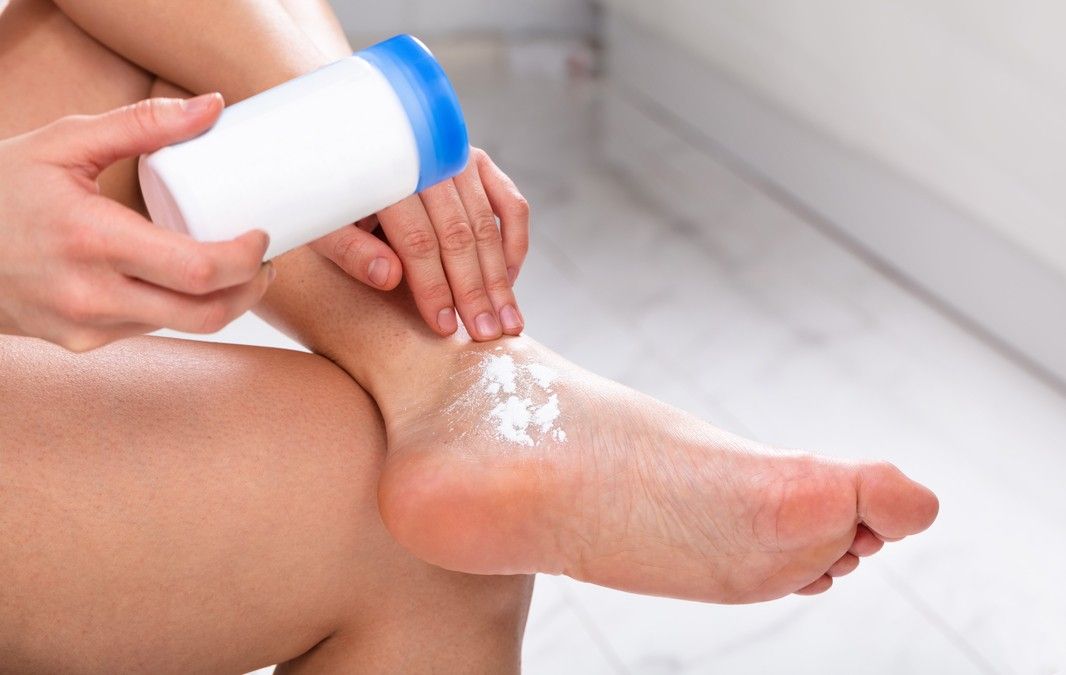
 How is asbestos linked to talc?
How is asbestos linked to talc?

